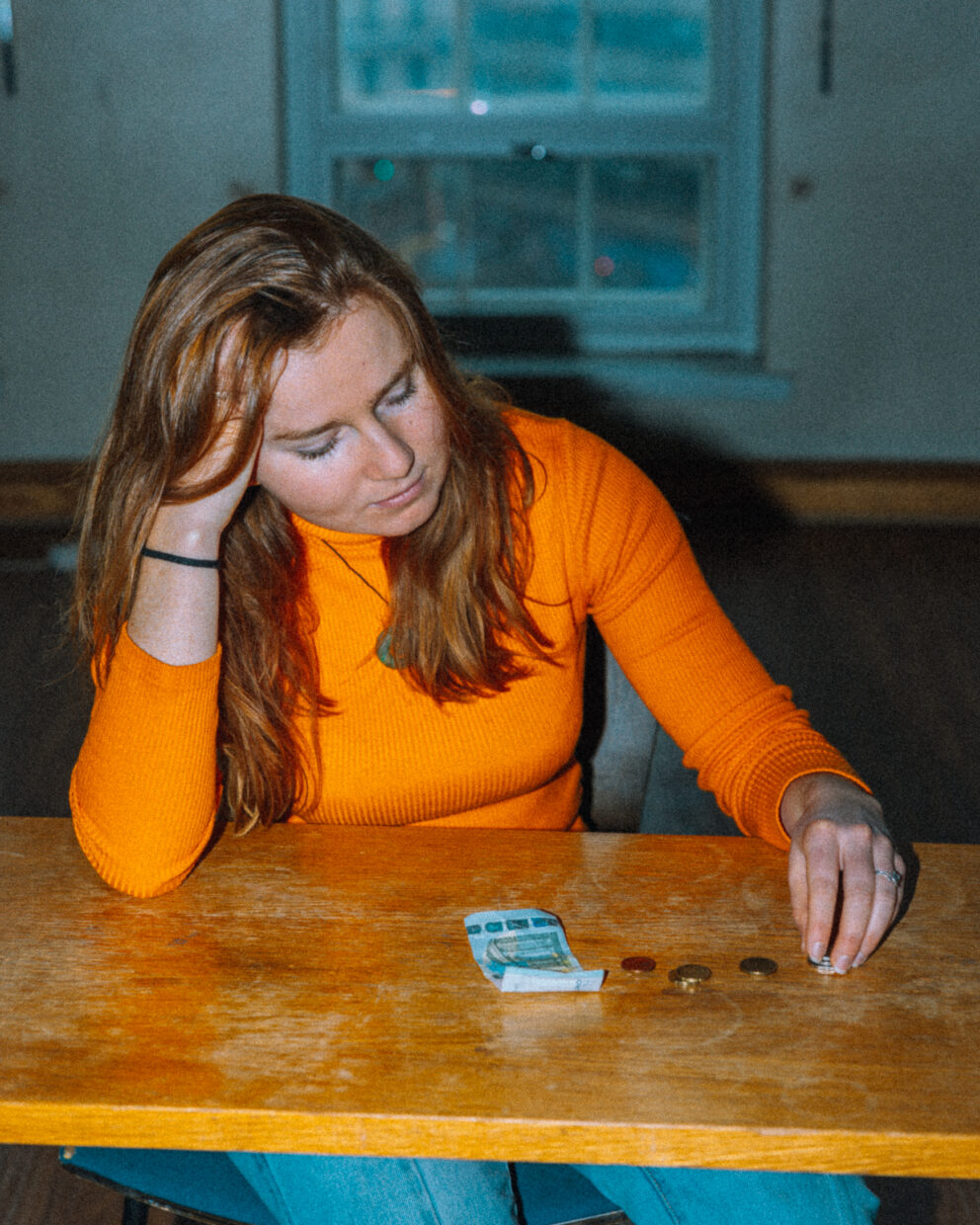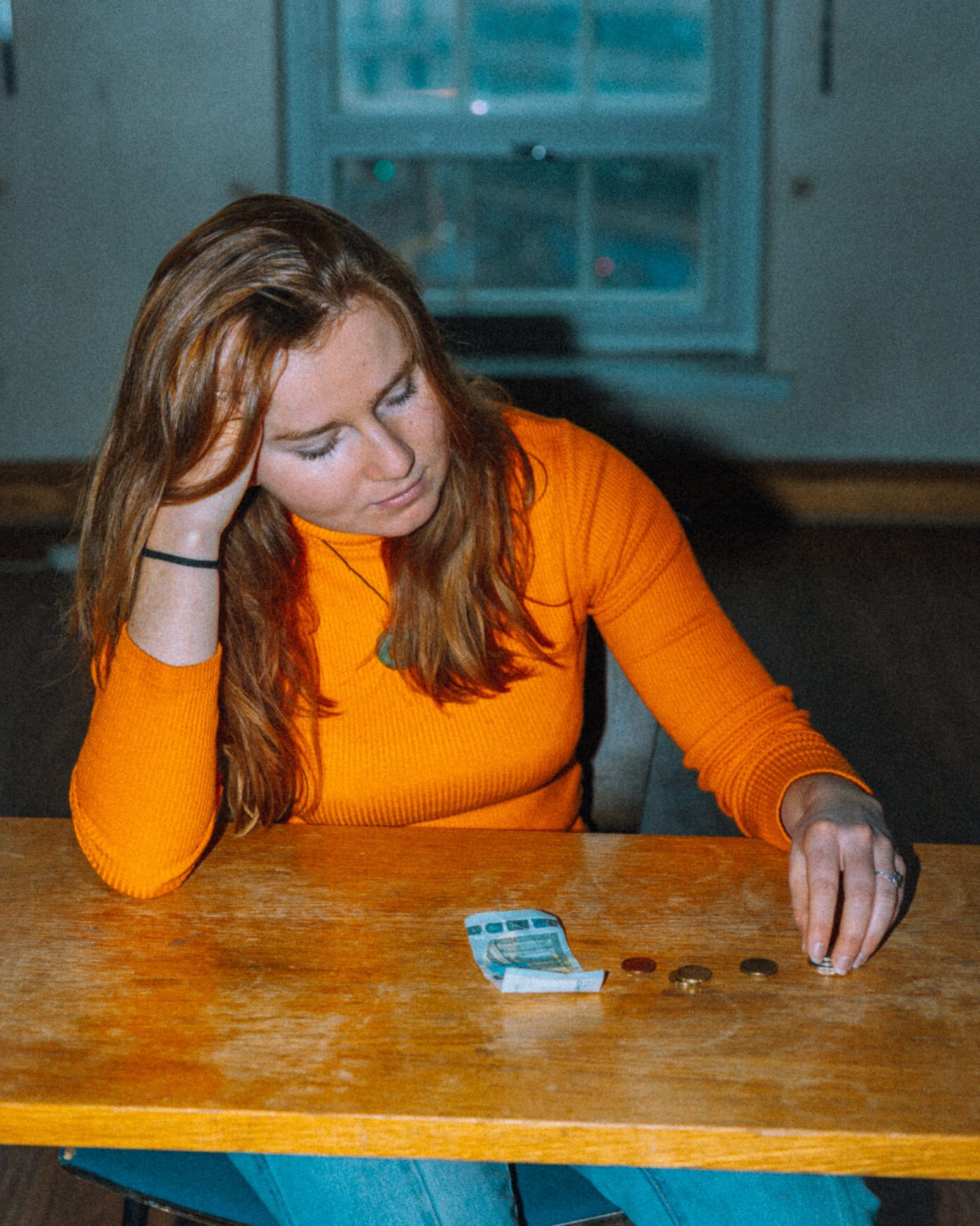Guide
Subsistence
NOTE! These instructions only apply to those students who are covered by the Finnish social security system.
As a student, your subsistence usually consists of the study grant and the housing supplement of student aid. In addition to these, you can also take out a student loan with a government guarantee. During difficult times, you can get sickness allowance or basic social assistance. If needed, you can always contact HYY’s specialists – we are here for you!
Student Aid
-
-
Study grant
The study grant is a part of the student aid you receive. Usually, you can get 9 months of student aid a year. However, if you study during the summer, you can also apply for student aid for the summer months. If you are the guardian of a minor, you will also receive the provider supplement of the study grant. The number of children or who the child(ren) live(s) with does not affect the size of the study grant.
-
-
-
Taxation of the study grant
If you have any other income besides the study grant, you will need to take the study grant into account in taxation. Make sure that your study grant and other income remain under the income limit shown on your tax card or, if needed, order a new tax card.
-
-
-
Incomes Register
The Incomes Register is a database containing your up-to-date income information. You can check your earned income as well as the taxes and fees deducted from it through the service. The Incomes Register helps you monitor your own income and the income limits of student aid, for instance.
-
-
-
Period of eligibility
The available number of months of student aid is limited, and the months have been split between bachelor’s and master’s degrees. The number of months of aid at your disposal depends on when you started your studies. You can check the maximum periods of eligibility here. If needed, you can apply for an extension to your student aid in case your study progress was slowed down by a particularly good reason. If you are applying for an extension for completing a bachelor’s degree, the additional months of aid will not be deducted from the months of aid reserved for your master’s degree.
-
-
-
Study grant's income limit
Your annual income limit depends on the number of your study grant months per calendar year. Taxable gross earnings and capital, as well as foreign income are considered as income. If you exceed your yearly limit, you might need to pay some of your study grant back to Kela.
The income you have earned before or after your studies is not taken into account in the annual income limit. Nonetheless, it is possible for you to receive a preliminary decision about paying back your study grant if you exceed the annual income limit in your first year of studies or the year of graduation. Kela does not know when you have earned your income. You can avoid the need to pay back student aid by requesting a review. Read more on Kela’s website.
-
-
-
Study progress
Kela annually monitors the study progress of students who receive student aid. If you have received student aid, you must earn an average of 5 credits for each month of student aid and always at least 20 credits in total during the academic year. The minimum requirement of 20 credits is in effect even if you have received student aid for just one month. Kela does not monitor completed courses for individual months, which means that the decisive factor is the total number of credits accumulated throughout the year. Completing a degree always means that your study progress has been sufficient – in this case, you do not need to worry about whether you have enough credits.
-
-
-
Period considered when monitoring study progress
If you receive a study grant from Kela, you will also get the government guarantee for a student loan. The student loan is a loan guaranteed by the government. You will have to pay it back. You can take out the student loan in proportion to your months of student aid, generally 9 months a year. If you receive student aid during the summer, you can also take out a student loan during the summer. The amount of government guarantee for the student loan is higher when studying abroad.
-
-
-
Student loan
If you receive a study grant from Kela, you will also get the government guarantee for a student loan. The student loan is a loan guaranteed by the government. You will have to pay it back. You can take out the student loan in proportion to your months of student aid, generally 9 months a year. If you receive student aid during the summer, you can also take out a student loan during the summer. The amount of government guarantee for the student loan is higher when studying abroad.
-
-
-
Applying for student loan
Your bank gets your information directly from Kela, but you need to apply for the loan from the bank yourself. You can apply for the loan from your own bank or compare the options offered by different banks. When comparing options, we recommend paying particular attention to the margin asked by the bank.
-
-
-
Cancelling or returning months of student aid
Student loan is not returned even when you return your study grant voluntarily. The loan is paid back after graduation. If you wish to take out a student loan but cancel the months of student aid to save them, you should first take out the loan and then cancel the desired months of aid afterwards.
-
-
-
Repayment
Agree on the interest payable on the loan and the repayment schedule with the bank. Repayment usually begins two years after graduation. If you have problems with repayment, contact your bank well in advance. People with low income can also apply for Kela’s interest assistance for paying the interests of the loan.
-
-
-
Student loan compensation
If you complete your degree in target time, you may be eligible for Kela’s student loan compensation. It is only available for your first degree. When you have completed your bachelor’s degree, you should consider whether you believe you will complete your master’s degree in target time, too, and whether you should finance some of your master’s studies with the student loan or use the compensation earlier. Use Kela’s calculators to help you with the decision.
-
-
-
Payment default and student loan
Payment default entries no longer prevent you from receiving the government guarantee, but the bank may still decide not to grant the guarantee because of the entry.
-
-
-
Sickness allowance
If you are enrolled in higher education and you cannot make progress in your studies because you are ill, you should consider not using your remaining student financial aid months. You have a limited amount of financial aid months. It may be a better option for you to take sick leave and get sickness allowance instead.
-
Housing subsistence
-
-
The housing supplement of student aid
Students’ housing costs are supported by the housing supplement of student aid. You can get the housing supplement if you are entitled to student aid and live on rent or in a right-of-residence apartment. The benefit is personal even if you live with a partner or roommate. Receiving the housing supplement is tied to your months of student aid. This means that receiving the housing supplement also uses up your months of aid.
-
-
-
Amount of the housing supplement
The housing supplement of student aid has categories for different municipalities, which means that the amount of housing supplement you receive depends on your municipality of residence. The amount of the supplement is a maximum of 80% of your rent or the maintenance charge of your right-of-residence apartment. The amount of your supplement is smaller if you live in an apartment owned by or rented from your parents.
-
-
-
Income monitoring
Your income is monitored for the housing supplement of student aid the same way as for student aid. The student aid has an annual income limit that depends on the number of months of student aid you have received. If you are about to exceed your annual income limit, you will have to remember to return or cancel your entire student aid yourself. No taxes are paid on the housing supplement – it is non-taxable income.
-
-
-
General housing allowance
If you live with your own or your partner’s children or receive some other benefit than student aid, you are covered by general housing allowance. General housing allowance is available throughout the year and is not tied to the number of your months of student aid. However, please note that general housing allowance is a household-based benefit, and you must inform Kela if your income changes.
If you are covered by the housing supplement of student aid, you are not eligible for general housing allowance even during the summer if your studies continue in the autumn.
-
-
-
Housing supplement paid abroad
The housing supplement of student aid is also available for living costs abroad for the duration of an exchange, for instance. However, you cannot simultaneously receive the housing supplement for an apartment in Finland.
-
Basic social assistance


Basic social assistance for students
Students have the right to apply for basic social assistance. You can apply for social assistance if you are not entitled to student aid or if you have used up your months of student aid. If you cannot find a job or suitable studies for the summer, you can apply for basic social assistance from Kela. Preventive and supplementary social assistance is applied for from your own wellbeing services county or, in Helsinki, the city. Unfortunately, you have to take out all the student loans available to you for the academic year before you can apply for social assistance.
Useful links
Frequently Asked Questions
-
No, if you have been awarded financial aid for the entire duration of your studies. Your study grant decision will show the length of your entitlement to student aid. However, you need to apply for student loan from your bank each year.
-
You can apply for student aid for the summer if you will be studying during the summer. Summertime student aid consists of the study grant, the housing supplement and the government guarantee for the student loan. Please note that studying during the summer uses up your months of student aid and affects the income limits of student aid. Read more.
If you cannot study during the summer and have not got a summer job, you can apply for basic social assistance. However, you will need to demonstrate that you have applied for jobs and that studying during the summer is not possible for you. In addition to this, your student loans and any savings you may have are taken into account as income.
-
The primary benefit for students is the student financial aid. Depending on your situation, you can be entitled to other benefits, for instance sickness allowance. Read more here.
-
No, you do not need to. Kela receives the information of you being a guardian from the population information system. Payment of the supplement starts at the beginning of the month following the start of your guardianship at the earliest.